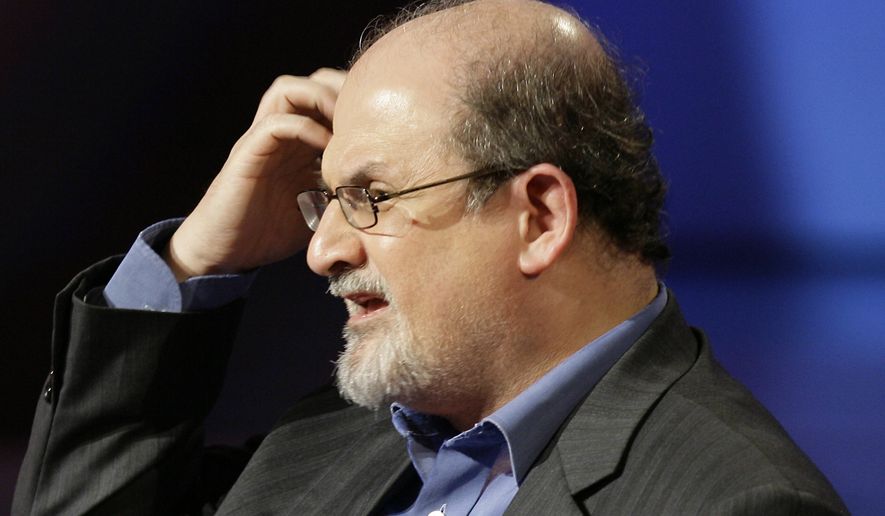Novelist Salman Rushdie spent two decades in hiding under the protection of the British government over a 1989 death sentence imposed on him by the Iranian government and murderous threats by other Muslims for purported blasphemy against the prophet Muhammad in his novel “The Satanic Verses.”
He doubts that would happen today.
Now, Mr. Rushdie says in an interview with a French magazine, Western governments are too eager to appease Islamism, both at home and abroad. He was also sharply critical of President Obama for his reluctance to use the I-word when speaking of terrorism.
“Today, I would be accused of Islamophobia and racism. People would say I had attacked a cultural minority,” the writer told Le Point magazine in an interview excerpted in the newspaper Le Figaro and translated with computer assistance by The Washington Times.
He cited as an example of the change the handling of Charlie Hebdo, where an often scabrous satirical newspaper was threatened for years by Islamists and eventually numerous employees there were killed in a terrorist attack.
“Instead of responding to attacks against freedom of expression, voices were raised to decry blasphemy and to propose compromise with terrorism. There is no blasphemy in a democracy,” Mr. Rushdie said.
In the interview, the writer decried the reluctance of Western governments to use the words “Muslim” or “Islam,” preferring instead to attribute terrorist attacks to “unbalanced” people or to a generic thing like “radicalism” or “extremism,” even when the attackers themselves say Islam is their motive.
“You French use the ’Daesh’ label, which neutralizes things, while worldwide it is called ISIS movement, Islamic State of Iraq and Syria,” he said.
Some of his fire also was aimed at the Obama administration and its repeatedly defended refusal (one often criticized by Republicans) to attribute terrorist attacks to Islam in any form.
“Nor does he spare Barack Obama for his stubbornness in not saying the word ’Islam’ in reacting to the attacks committed in its name. The author interprets this silence, in the end, as a mandated caution against offending Muslims and African-Americans, who often are attracted to Islam,” Le Figaro wrote.
• Victor Morton can be reached at vmorton@washingtontimes.com.




Please read our comment policy before commenting.